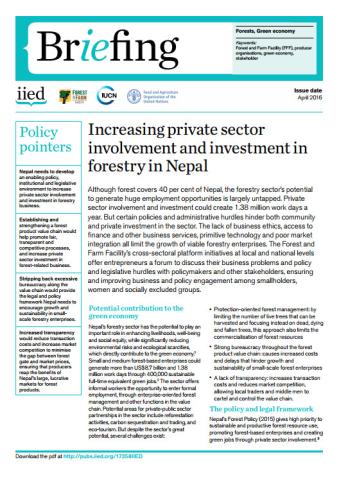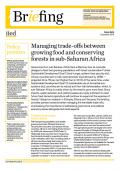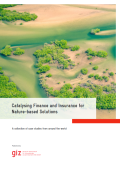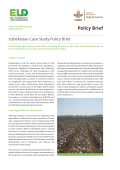Browse by:
Type
Sector
Country
- Afghanistan (1)
- Albania (1)
- Antigua and Barbuda (2)
- Argentina (1)
- Australia (4)
- Austria (3)
- Bahamas (3)
- Bahrain (2)
- Bangladesh (6)
- Barbados (2)
- Belgium (2)
- Belize (5)
- Benin (3)
- Bhutan (4)
- Bolivia (3)
- Bosnia and Herzegovina (1)
- Botswana (5)
- Brazil (14)
- Bulgaria (1)
- Burkina Faso (1)
- Cabo Verde (2)
- Cambodia (8)
- Cameroon (4)
- Canada (24)
- Central African Republic (1)
- Chad (1)
- Chile (3)
- China (27)
- Colombia (10)
- Congo (2)
- Cook Islands (5)
- Costa Rica (12)
- Cuba (1)
- Cyprus (1)
- Czech Republic (3)
- Democratic Republic of the Congo (3)
- Denmark (8)
- Dominican Republic (2)
- Ecuador (5)
- Egypt (3)
- El Salvador (1)
- Equatorial Guinea (1)
- Ethiopia (8)
- Federated States of Micronesia (7)
- Fiji (8)
- Finland (9)
- France (9)
- Gabon (1)
- Gambia (2)
- Georgia (2)
- Germany (10)
- Ghana (10)
- Global (1)
- Greece (2)
- Grenada (2)
- Guatemala (1)
- Guyana (1)
- Haiti (3)
- Honduras (3)
- Hungary (2)
- Iceland (4)
- India (31)
- Indonesia (27)
- Iran (1)
- Ireland (2)
- Italy (11)
- Jamaica (3)
- Japan (11)
- Jordan (5)
- Kazakhstan (5)
- Kenya (20)
- Kiribati (5)
- Kosovo * (1)
- Kyrgyzstan (4)
- Lao (7)
- Latvia (1)
- Lebanon (2)
- Lesotho (1)
- Liberia (2)
- Madagascar (6)
- Malawi (3)
- Malaysia (7)
- Maldives (7)
- Mali (4)
- Marshall Islands (6)
- Mauritania (2)
- Mauritius (3)
- Mexico (13)
- Moldova (1)
- Mongolia (7)
- Montenegro (2)
- Morocco (6)
- Mozambique (5)
- Myanmar (8)
- Namibia (4)
- Nauru (4)
- Nepal (12)
- Netherlands (10)
- New Zealand (5)
- Niger (1)
- Nigeria (3)
- Niue (6)
- North Macedonia (1)
- Norway (8)
- Pakistan (4)
- Palau (5)
- Papua New Guinea (6)
- Peru (7)
- Philippines (22)
- Portugal (1)
- Qatar (1)
- Republic of Korea (14)
- Republic of Moldova (1)
- Romania (2)
- Rwanda (3)
- Saint Kitts and Nevis (3)
- Saint Lucia (8)
- Saint Vincent and the Grenadines (1)
- Samoa (9)
- Saudi Arabia (1)
- Senegal (5)
- Serbia (2)
- Seychelles (1)
- Sierra Leone (3)
- Singapore (2)
- Slovakia (1)
- Slovenia (1)
- Solomon Islands (5)
- South Africa (10)
- Spain (2)
- Sri Lanka (7)
- Sudan (1)
- Suriname (4)
- Sweden (9)
- Switzerland (2)
- Tajikistan (3)
- Tanzania (11)
- Thailand (13)
- Timor-Leste (4)
- Togo (1)
- Tonga (2)
- Trinidad and Tobago (7)
- Tunisia (4)
- Türkiye (1)
- Turkmenistan (2)
- Tuvalu (4)
- Uganda (14)
- Ukraine (4)
- United Arab Emirates (1)
- United Kingdom of Great Britain and Northern Ireland (15)
- United States of America (24)
- Uruguay (1)
- Uzbekistan (7)
- Vanuatu (8)
- Viet Nam (16)
- Zambia (6)
- Zimbabwe (3)
Region
Theme
- Climate Change (249)
- Natural Capital (203)
- Development (120)
- Institutions and Governance (94)
- Indicators and Measurement (89)
- Circular Economy (75)
- Cities (73)
- Infrastructure (69)
- Risk and Resilience (53)
- Technology and Innovation (37)
- Consumption (31)
- Investment (30)
- Poverty and Equity (29)
- Standards and Regulations (28)
- Gender (26)
- Market Mechanisms (23)
- COVID-19 (20)
- Jobs (20)
- Fiscal Instruments (18)
- Trade and Supply Chains (15)
- Health (9)
- Government Procurement (8)
- Sustainable, Green, and Social Bonds (3)

Although forest covers 40 per cent of Nepal, the forestry sector’s potential to generate huge employment opportunities is largely untapped. Private sector involvement and investment could create 1.38 million work days a year. But certain policies and administrative hurdles hinder both community and private investment in the sector. The lack of business ethics, access to finance and other business services, primitive technology and poor market integration all limit the growth of viable forestry enterprises. The Forest and Farm Facility’s cross-sectoral platform initiatives at local and national levels offer entrepreneurs a forum to discuss their business problems and policy and legislative hurdles with policymakers and other stakeholders, ensuring and improving business and policy engagement among smallholders, women and socially excluded groups.
Related Case Studies

Our decreasing forest landscapes are under huge pressure to deliver local and global needs, from a village’s food and firewood to mitigating climate change. With demand unlikely to fall, the key issue is how we extract what we need. Governments are faced with two contrasting business models: the profit-maximising, often...

Governments in sub-Saharan Africa face a dilemma: how to reconcile pledges to feed fast-growing populations with forest conservation? Under Sustainable Development Goal 2 (end hunger, achieve food security etc), African countries aim to fully meet domestic food demand by 2030 — projected to be 70 percent higher than in 2010...


Independence from the former Soviet Union in 1991 presented the republics of Central Asia, Kazakhstan, Kyrgyzstan, Tajikistan, Turkmenistan, and Uzbekistan, with severe challenges for land management with ensuing economic, social, and environmental crises. Driven by the historic development of irrigation projects, often unsupportable increases in livestock numbers on rangelands, and...
